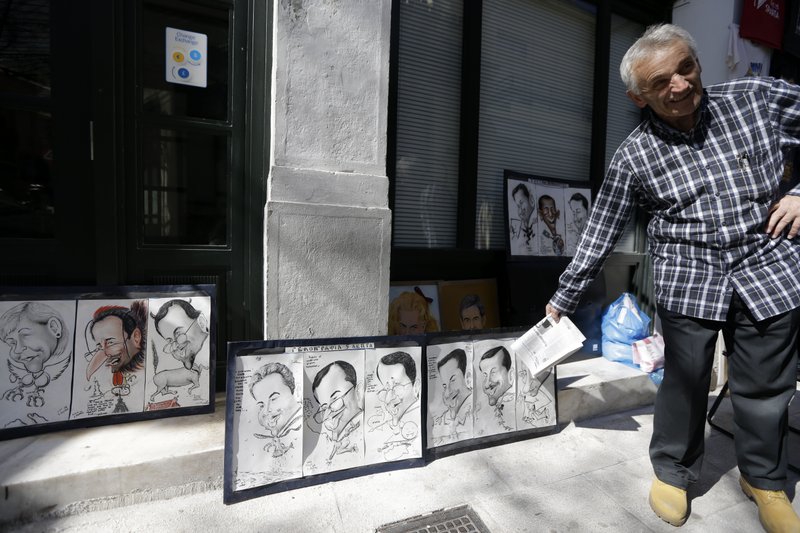ATHENS, Greece -- Greece will submit a list of changes to be agreed with its creditors today, the country's finance minister said Saturday.
"We are in the process of compiling the list of reforms for the institutions," finance minister Yanis Varoufakis told reporters Saturday evening, after an inner Cabinet meeting under Prime Minister Alexis Tsipras.
After weeks of accusations and distrust, Greece and its creditors in the 19-nation eurozone reached an agreement Friday to extend the country's rescue loans, a move that should dramatically ease concerns it was heading for a euro exit as soon as next month.
The agreement means that Greece will avoid going bankrupt, at least over the four months of the extension. To get the money though, the Greek government has to present a series of unspecified economic changes that are deemed acceptable by creditors and rooted in Greece's previously enacted bailout agreement -- something the government had promised not to do.
Varoufakis said Saturday that the list of changes would be submitted in good time, giving the creditors as much time as possible to assess it.
He added he is very confident that the list will be approved by "the institutions" -- meaning the European Commission, the European Central Bank and the International Monetary Fund, previously collectively referred to as "the Troika."
Replacing the word "troika" with "institutions" in official communication about the negotiations was a semantic concession to the new government, which has been telling Greeks that they have got rid of the Troika. The term itself had been associated in the minds of Greeks with midlevel officials representing the three institutions visiting the country and bossing around ministers.
Varoufakis said Greece and the creditors will discuss the list of changes via teleconference Monday. If the institutions approve it, talks for the completion of the existing bailout package will continue. If not, the eurozone's finance ministers will hold a new Eurogroup meeting Tuesday.
Earlier, Tsipras praised the "important success" of Greece's negotiations with its creditors, but warned that more difficult consultations lie ahead.
"We won a battle, but not the war. The difficulties lie ahead of us," Tsipras said in a TV appearance, adding Greece is now seeing "the end of austerity and the bailout."
Faced with criticism that he came away with few concessions, Tsipras aimed to put his own spin on the deal.
"Twenty days ago, we took over a country on the edge of the abyss, with an empty treasury, and facing suffocating deadlines," Tsipras said, despite the fact that Greece achieved a modest growth last year as well as a primary budget surplus.
Tsipras didn't specify what changes would be considered but mentioned a crackdown on tax evasion and corruption, fixing the state sector and dealing with the country's "humanitarian crisis."
The agreement was greeted with relief by some Greeks as a first step forward and away from the crushing austerity of recent years. Others were more skeptical, wondering whether the left-wing Syriza government will be able to keep its promises and how it will find the money to finance them.
"It was a good start. There is a long way ahead of us, but I am optimistic. At least things will not get worse," said Thomas Michalopoulos, 34, a private company employee.
"I don't know. Where will they find the money to fund all those promises they have made?" asked Maria Kefala, a university student and journalist.
"I think that nothing changed," added retiree Paradissanos Rigas, 72.
Information for this article was contributed by Raphael Kominis and Oleg Cetinic of The Associated Press.
A Section on 02/22/2015
